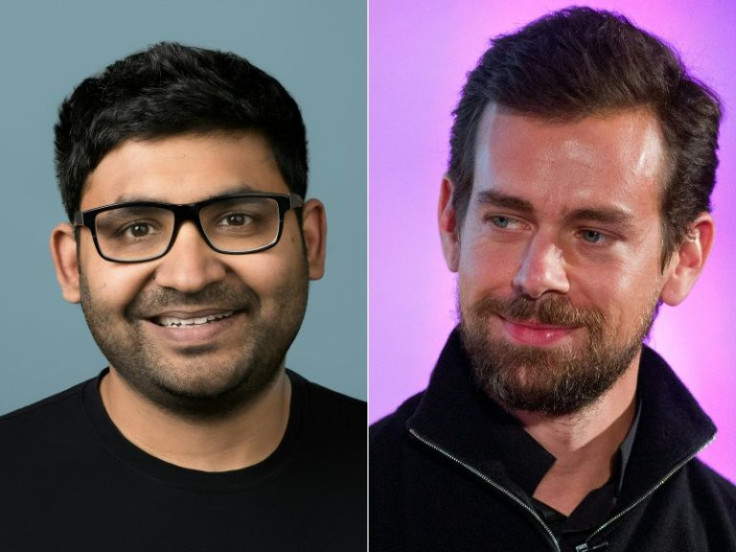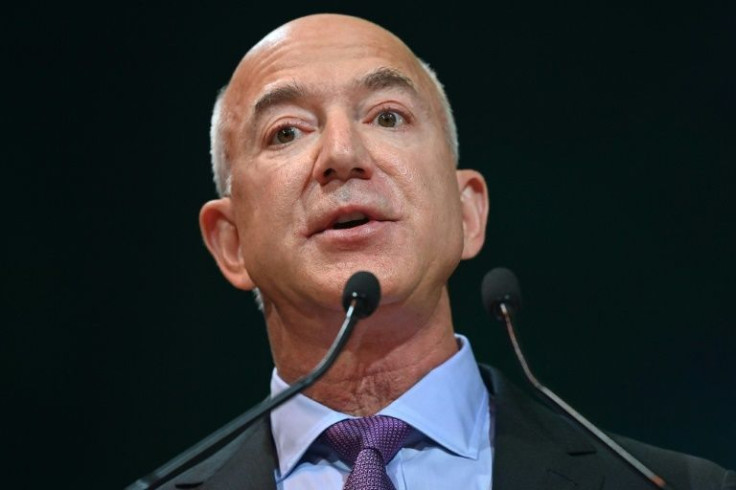Lead 'Em Then Leave 'Em: Tech Founders Who Quit
Former Twitter CEO Jack Dorsey joins a long list of tech gurus who've quit the companies they founded. But what makes them step aside -- and is it good for business?
From Microsoft's Bill Gates to Amazon's Jeff Bezos, most of the people who created the Silicon Valley giants that dominate our lives have since handed the reins to someone else.
"There's a lot of talk about the importance of a company being 'founder-led'. Ultimately I believe that's severely limiting," Dorsey said in his resignation letter, posted Monday on the social network he helped set up in 2006.
Previous tech founders have stepped down for a variety of reasons, from their health to a desire to pursue other interests.
Steve Jobs was suffering from pancreatic cancer when he resigned as Apple chief in 2011, dying just six weeks later.

Gates meanwhile quit as Microsoft CEO in 2000 to concentrate on his philanthropic work, while Bezos has focused on his Blue Origin space company since July.
"It's not uncommon for a founder to lose interest," said US tech analyst Rob Enderle.
"As a company grows, it changes a lot," he told AFP. "You go from hands on doing work to largely doing administrative tasks and politics."
As for Dorsey, his priorities appear to have shifted to his obsession with cryptocurrencies. His Twitter bio reads simply: "#bitcoin".
"He's not really that passionate about Twitter anymore," Enderle said.
He pointed to the tumult of the Donald Trump era, when the then US president used Twitter as a megaphone before he was controversially booted off, as a source of angst to Dorsey.

"I think the drama and politics weighed on him and clearly, much of his recent effort has been focused on the Bitcoin exchange," Enderle said.
Resigning as CEO does not always mean a tech giant's founder distances themselves from the company altogether.
Google founders Larry Page and Sergey Brin still have a controlling stake in the search giant and remain on the board of its parent company Alphabet.
Bezos remains executive chair of Amazon and has signalled he wants to "stay engaged in important Amazon initiatives".
He also retains some 10 percent of Amazon's shares, worth around $180 billion -- the bulk of his fortune.
The computer engineers who built some of the world's biggest websites -- in Bezos' case, in his garage -- have frequently cited the need to pass the baton to seasoned business executives better equipped to run multi-billion-dollar companies.
Sundar Pichai at Alphabet, Satya Nadella of Microsoft, Amazon's Andy Jassy and Twitter's new CEO Parag Agrawal all have intimate insider knowledge after spending years climbing the company ranks.
But replacing the founders with managers is not without its risks, however competent they may be, Enderle argues.
"Often a founder wants to preserve the company," he said, giving IBM as an example of a major tech brand declining "as different managers came in".
"The subsequent executives increasingly focus on short-term monetary gains over long term strategic survival," Enderle said.
"That's why there are very few companies that have lasted 100 years, because that cycle kicks in after the founder leaves."
Facebook's Mark Zuckerberg stands out as the last major Silicon Valley founder still serving as CEO -- but even his position has been questioned of late.
Facebook's parent company was recently renamed Meta in a rebrand that follows a difficult period for the social media giant.
Frances Haugen, the whistleblower whose leaked documents showed that Facebook knew its sites were harmful in various ways, has argued the company cannot fix his problems while Zuckerberg remains in charge.
"I think Facebook would be stronger with someone who's willing to focus on safety," she told the Web Summit tech conference in Lisbon earlier this month.
Company insiders suggest power within Facebook remains unusually concentrated in the hands of Zuckerberg, whose reign as chairman-CEO has been uninterrupted since he and fellow Harvard students founded it in 2004.
"Zuck never really learned how to be a CEO," Enderle suggested.
"The mistakes he's made were critical mistakes that put Facebook at high risk, and are mistakes that I don't believe an experienced CEO would affect."
© Copyright AFP {{Year}}. All rights reserved.





















